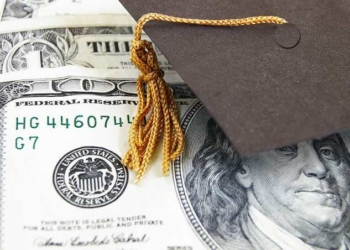
COVID-19 has undermined all domains of human lives by introducing unavoidable changes and limitations to the traditional ways of doing things. In this way, billions of people have found themselves locked out of the regular daily routines, with no alternatives other than adapting. The pandemic’s impact on education has also been pronounced, with students being locked at home, one on one with the new technology and self-paced learning. Some participants in the educational process found it easy to adapt, while others still experience the stress and uncertainty about the new education norms. We have conducted a study of how COVID-19 impacted education, and here is a summary of the significant findings.
Uncertainty
The worst about the COVID-19 outbreak and its related consequences for education is the ever-present feeling of uncertainty surrounding the educational schedules, norms, and goals. Upon the start of the pandemic, students were locked out of the traditional classroom studies, needing to adapt to online delivery of education quite quickly for the sake of not failing a grade. More than one year after the COVID-19 onset, there is still little clarity about when the pandemic will end, whether educational establishments will get back to normal functioning, how students will be tested, and what concessions will be made with respect to COVID-19. Therefore, the lingering uncertainty undermines students’ and educators’ confidence in their educational routines, giving no clear guidelines and no clear idea of the future of education.
Filling the Learning Gap
The abrupt nature of COVID-19 and the related quarantine measures have ruined students’ confidence in the study process. Many students have failed to organize their study routines at home, while others could not grasp the basic scientific concepts through online class delivery. Thus, the COVID-19-related changes in the educational routines have exacerbated the learning gap across different communities, leaving the struggling learners overboard and successful learners struggling to maintain stable academic performance.
Personalization
The most evident response to the surfacing student challenges amid the COVID-19 pandemic is to respond to student needs in a more personalized manner. Teachers working with their students online because of the pandemic restrictions have a unique chance of treating each student’s progress and problems more individually, though at the expense of greater time expenditures. However, this additional effort may pay off in a broader reform of mainstream education towards greater customization and individualization.
Building Confidence in Students
Another challenge that masses of students have been experiencing since the onset of COVID-19 is psychological; it relates to student confidence about their learning. In the traditional classroom, students tend to be much more confident about their material comprehension because they have immediate feedback and scaffolding from their teachers. While staying alone in their home settings and managing their learning independently, many students lost their academic confidence, thus experiencing deteriorating performance and new material comprehension. The problem exacerbates as new knowledge can’t be absorbed well in previous topics’ poor comprehension conditions. Thus, teachers need to look for more systemic approaches to instilling confidence in students to improve the quality of learning.
Greater Role of Parents in Education
Amid the COVID-19 pandemic, parents received an unexpectedly responsible role in the educational routines of their children. While needing to handle their work tasks from home, millions of families also faced the need to help their kids study, master the new technology, organize their study spaces, and get on track with new educational routines. It proved to be a tough challenge for many individuals, juggling their home, work, and childcare tasks within the scarce 24 hours and trying to stay calm amid the COVID-19 panic. However, research proves that many coped with that challenge, reconsidering their day routines, setting up optimal work and study schedules, and supporting kids in the educational transition.
Challenges with Digitization of Education
Digital tools had been in use for many years before COVID-19, but they were optional and supplementary. For many students, a rapid transfer to online education with no available alternatives was still stressful. Some of them had no technical resources, and others failed to come to grips with the innovative technology. Thus, closing the technological gap remains a pressing challenge for the post-COVID-19 educational community. This gap has become the equivalent of an achievement gap, with severe consequences for under-performing students. Many more students have started ordering papers from academic helpers like mechanical engineering assignment writing service, which suggests that learners find it increasingly challenging to perform their homework on their own.
Problems with Self-Paced Learning
Another challenge students worldwide need to overcome is the lack of self-organization and time management skills. A considerable percentage of students failed to organize their study schedules effectively. As a result, academic performance deteriorated seriously, even among high performers, which requires urgent attention on the part of educators. COVID-19 is far from over, so the pressing priority of educators is to teach students the essentials of self-paced learning so that they can take advantage of educational materials and routines even in the conditions of social isolation.
Widening Learning Gaps or New Opportunities?
As analysis suggests, COVID-19 has hurt the educational performance of millions of students, forcing learners and educators to adapt to new routines too quickly. Yet, with proper time management and technical resources, students can still succeed. The core priority for educators in the new educational reality is to design personalized support for underperformers, help students close the technological literacy or access gap, and prepare students psychologically for the new norm in education.











